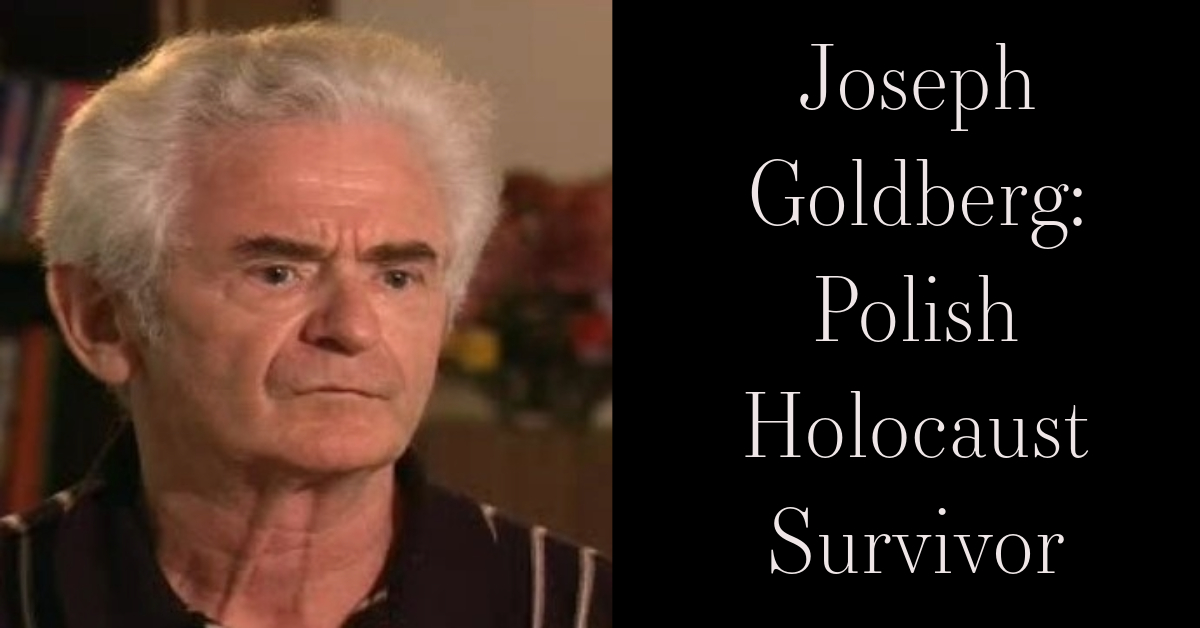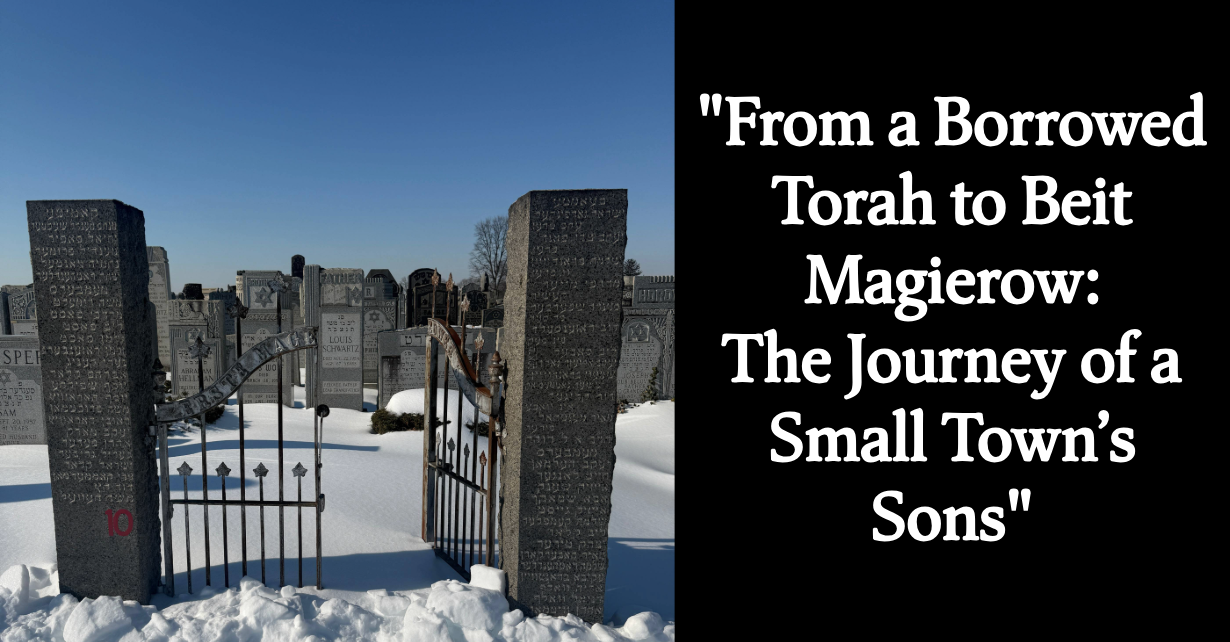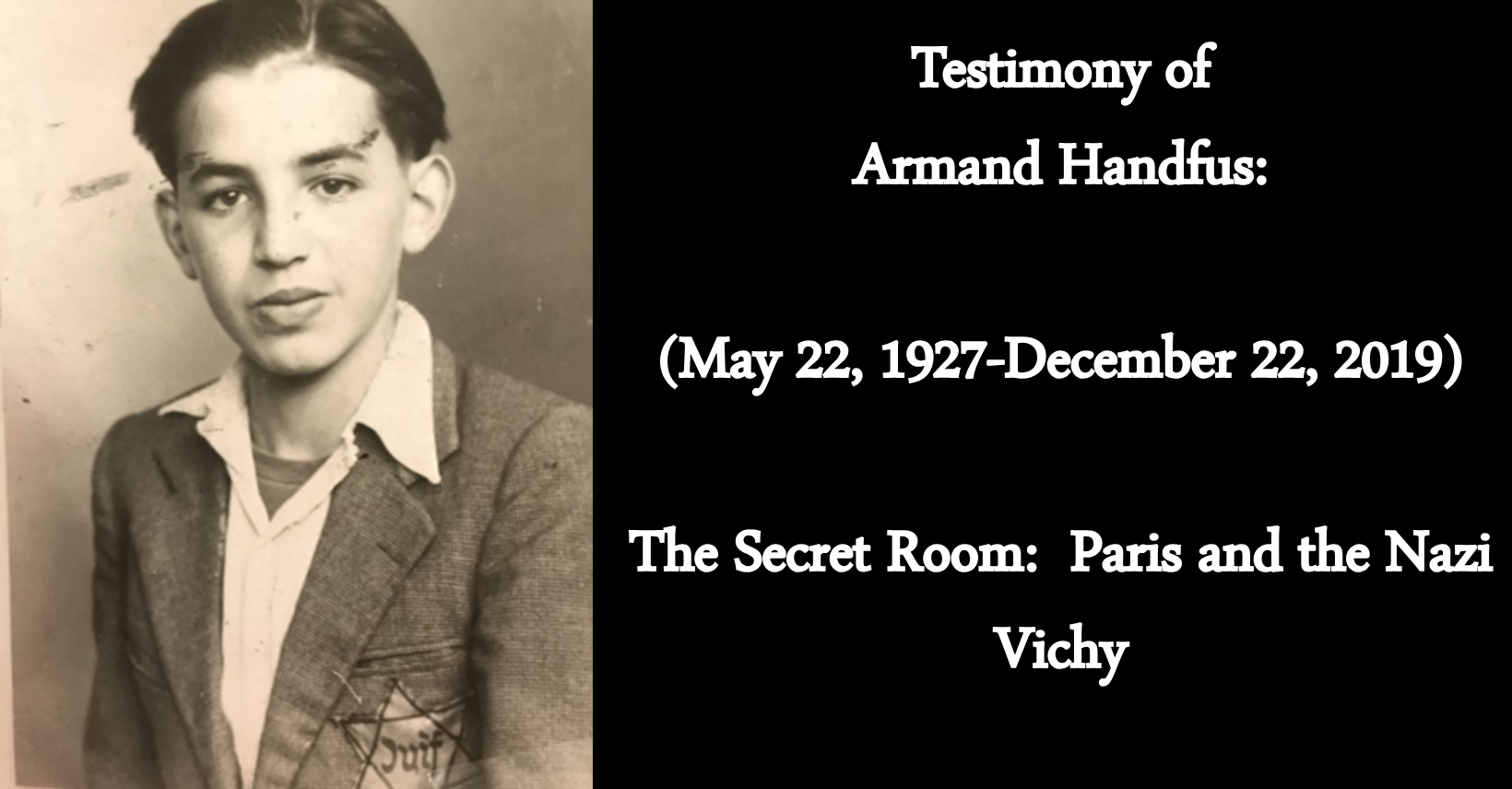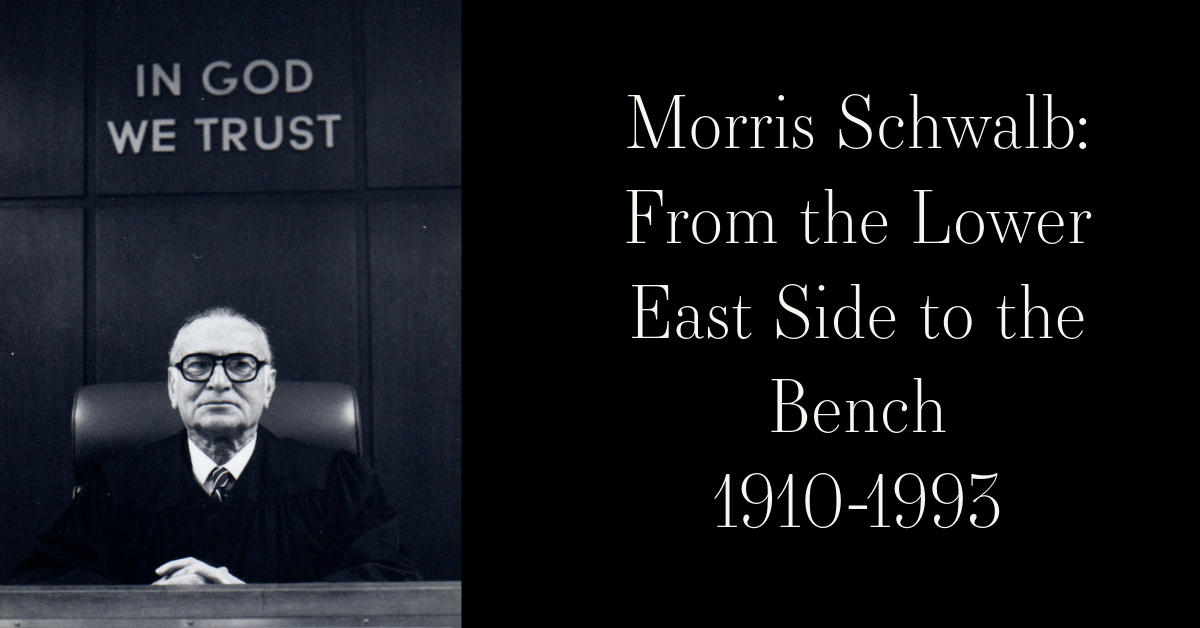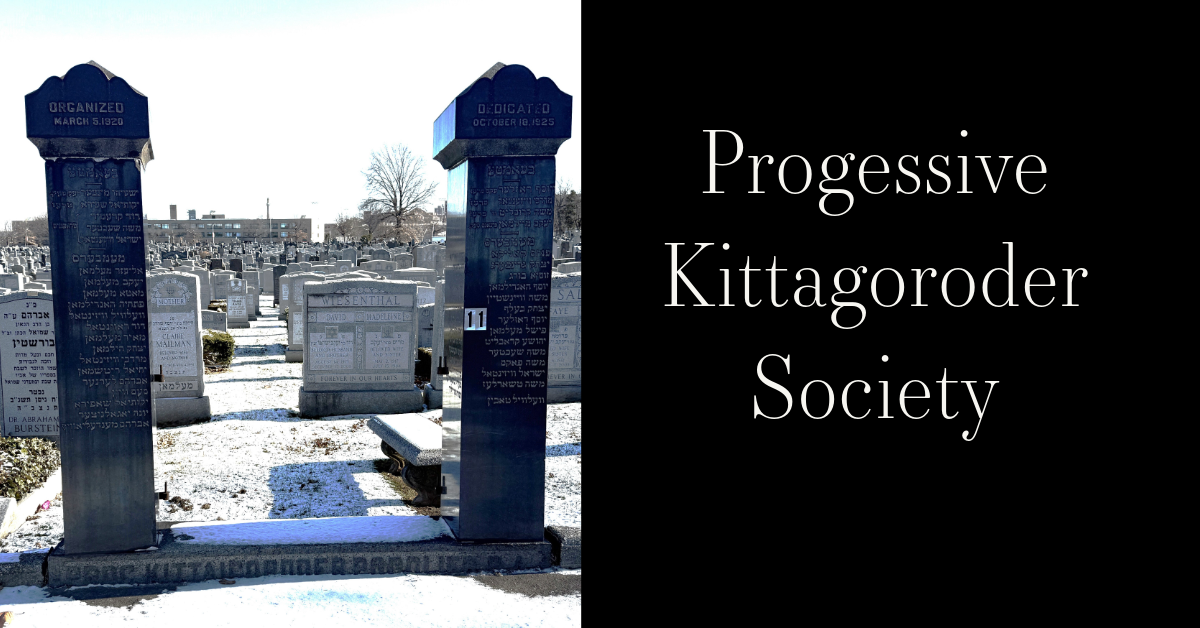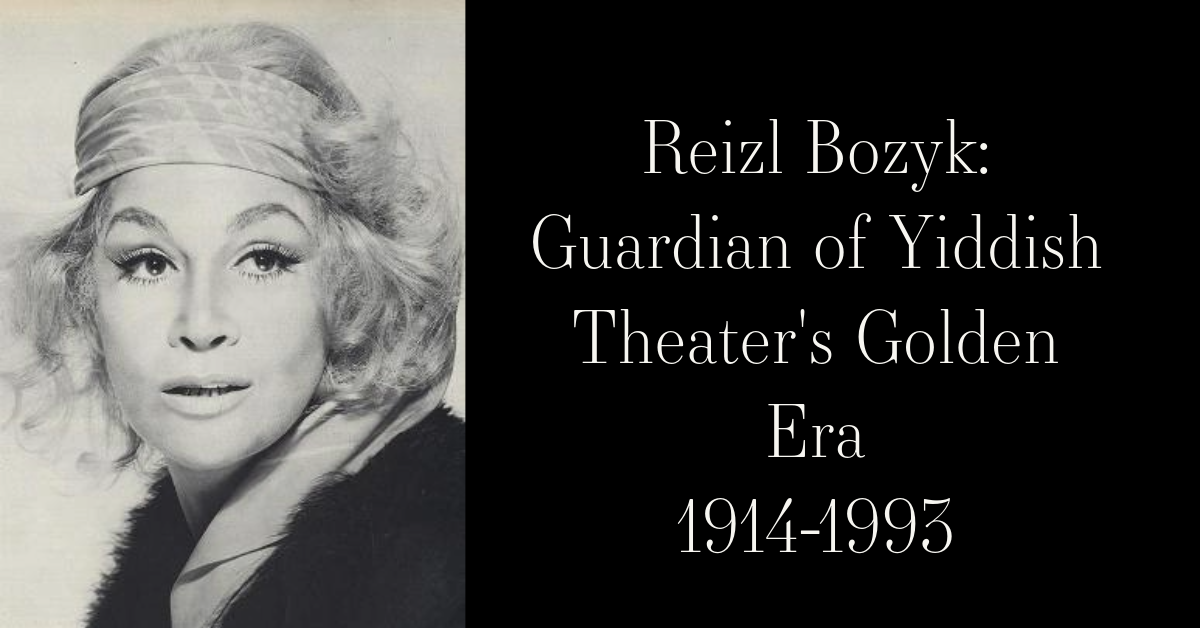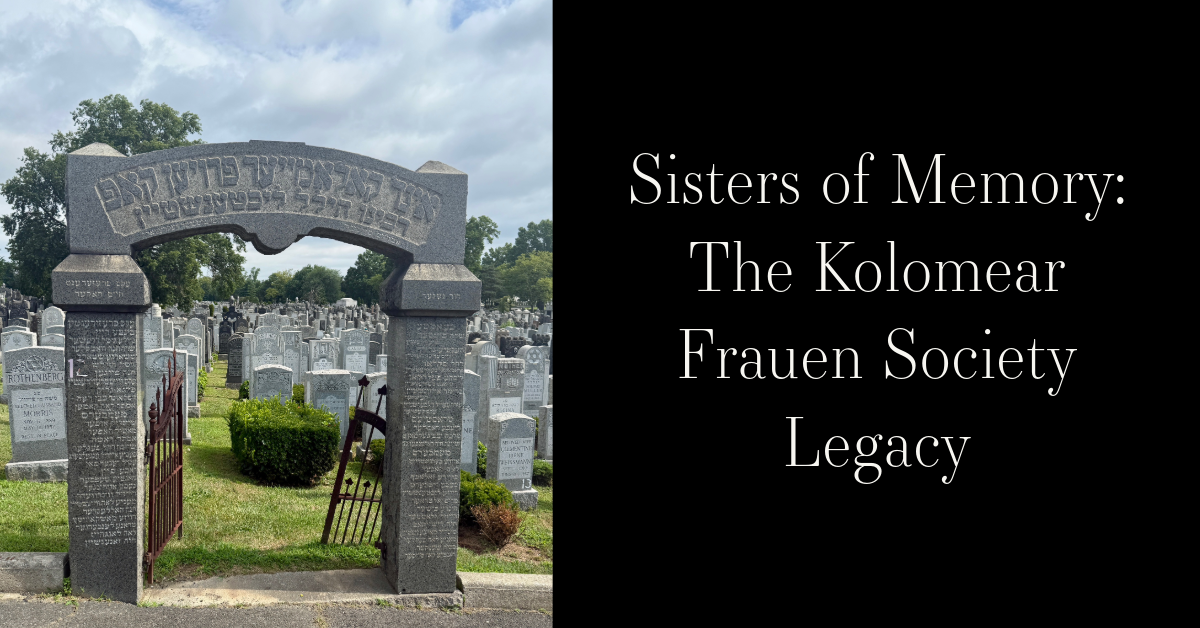Jospeh Goldberg: Polish Holocaust Survivor
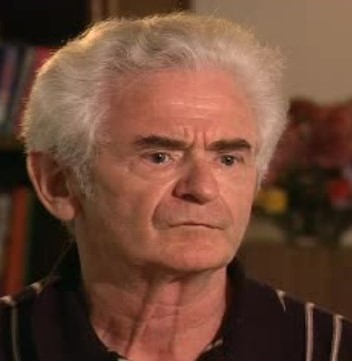
On May 5, 1928, Joseph Goldberg, also known as Moshe Yosef Goldberg, was born in Kleczew, a small town in Poland. Born into a family of four, Joseph was the only son. Kleczew was the hometown of around 150 Jewish families who were not accustomed to antisemitism as the Jews and the Gentiles were friendly. Joseph recalls pleasant thoughts from his first home. However, unfortunately, in 1937, the Goldbergs moved to another Polish town, and that is when everything changed.

Like in any society, business is one of the most important aspects of life as it keeps families going and helps a community flourish. It was because of business that Jospeh's family moved towns for when they lived in Kleczew some nights his father would have to stay out overnight, however in this town, there was not a night when his father did not come home. The town was better for their family physically, too, as the house they resided in was bigger. It might have sounded like the perfect setup to an outsider looking at this, but it was far from it. In this town, antisemitism started creeping up on them, precisely when it came to going to school. Joseph recalls how he lived only 10 minutes' walk from school if he walked straight; however, what one wouldn't see unless they followed him was that he was walking straight into the hands of bullies who would beat him up. Instead, he had to walk 30 minutes all around with the other Jewish kids. Although he had mentioned this to his family, he was told they needed to do their best because there was nowhere else to go.
Aside from his challenging experience with school, Joseph has very good memories of his childhood. He recalls fondly that people used to sit on his outside porch and listen to him sing Shabbat songs with his father. If there were one thing he could recapture from his childhood, it would be this memory.
1939, war broke out, causing an abrupt stop in Joseph's schooling. It was a Friday night before the holidays, and his sister went to the town to see their aunt. During this time, they heard a bombing, and he was sent to find his sister. Upon finding his sister, they made their way to a forest. "We were cowering in the forest, hoping for the best," Joseph retells this frightening moment. Thankfully, they survived, but this was only the beginning; this was the war!

Only a week after the war was declared, it hit his town, and they declared that those living on a specific street needed to move to the other side of town. Unfortunately, his family was one of the families that was forced to move, so they moved in with his aunt. After the passing of winter, his family moved again, and the conditions were awful this time. There wasn't even a floorboard in this place. At this time, all commerce stopped, and Jews could not go to the marketplace. The only way that they survived was by sneaking out to get food. In 1941, an epidemic of typhus broke out, and all of them were sick, aside from their mother. He remembers how they all bounced back quickly aside, for their father was ill and couldn't even walk at one point. Eventually, his father recovered, but he was never the same.
In the Spring of 1942, when life tended to blossom, it wasn't. It was the mark of him leaving home, which would never return to what it was. Joseph would go to work for his father every day; however, one day, instead of going home, all the men were taken to a local jail, and they kept them overnight. With the rise of the sun came the rise of the men, and they were walked to another village called Szyszki. The horror and sadness that was displayed on Jospeh's face while telling the story of what happened in this village is one that can not be erased. It was Yom Kippur, and the people had asked if they could do services for it, to which they were told yes. They proceeded to do services on Yom Kippur Day, which Joseph did not attend because he was advised against joining the services. Upon his return from work, he was met with SS officers who took all the men (around 30) and the other people to the forest. "They killed all of them, and we had to watch," he recounts, tears streaming down his face. The images that little Joseph had to see were unthinkable.
Two weeks after this unimaginable horror, they were taken somewhere they did not know, and a week after that, they were taken to another place called Krushin. In every camp, something known as 10:10 meant ten people on the truck, 10 people to be killed. Fortunately, his camp was the only one that did not do this. During this time, Joseph was in terrible shape; he did not speak to anyone and had only the clothes on his back. He had no idea if he had any surviving relatives left. Throughout his time, Joseph could not help but wonder, "Why me?" He looked around and saw people with their families and was all alone.
As if it wasn't enough of a trauma they were going through, the Polish people called them names and were not nice. Luckily enough, Joseph could weasel his way into a kitchen and work there, which worked to his advantage because it gave him more food. He made a deal with his friend that he would provide him with food if he did his job for him. It was a risk to be in the kitchen, but it was a risk worth taking. In the Summer of 1943, Joseph felt human again, a feeling that was beginning to feel foreign.
Although Joseph felt more himself as he got more food, life was still not good for the Jews. The Jews were hungry, for they only got soup at work, but they always felt hungry since they worked so hard. They barely had any clothing, and the clothing that they had they had they had to put in an oven to prevent lice, so they were mere shreds once they took them out. He remembers how they would make the Jews take off their shoes and dance around in the snow—the only word that comes to mind: sadists.
One incident he remembers as clearly as day is when he was walking past this drunk German man who started beating him. Joseph had enough, and he hit him with a pail and cut his head. Upon seeing this, the Polish guards sized him and took him to the guard house,e and made him do different exercises. It was here he thought he was going to die; however, fate had other plans. The German woman who worked with him in the kitchen came over to the guards and fought with them that he belonged to her. Somehow, she won the fight, so he is still here today. Joseph still has no idea why those events transpired the way that they did.
One day, the guards came with wagons and transported the people to Birkenau, another horror story. The days had become a blur, and Joseph was not sure how long it took to get there, but what he did know was that they were taken in cattle cars, and they were not given any water. He could only get water by paying one of the guards the little money he had left. Upon the arrival at Birkenau, the guards screamed "rouse," which means out. Men and women were separated, and the air was pierced with wailing sons crying out for their mothers. They were taken into the showers, and they thought the worst because they knew about the gas chambers and were afraid that would be their fate, too. Fortunately, they made it out of the showers, and they were given striped uniforms and shoes and taken to the camp. The only thing people could do at this time was commit suicide, for there was no way out; however, as Jews, they knew it wasn't allowed.
In July 1944, he went to Bunamonovitz with a group of people. They were quarantined for a week and then assigned to different blocks where they had to work. Joseph describes, "The work wasn't very hard, but when it was cold, it was hard." Unlike the other camps, this camp was very clean, and they had something like a mattress that they slept on. He was in this camp until January when he marched along with the others to Gliwice. This was a holding place, and they offered no food or water. It was no surprise that Joseph was among them when he heard they were giving people bread at the gate and transporting people.
The next destination that awaited them was Bubvinbav. Many died on this long journey as it was a week to 10 days in the cattle cars, and when they arrived, very few people were left. He doesn't recall much about his time in Bubvinbav as he wasn't there too long, but he does recall how they shaved people and dipped them into something. Additionally, everyday people were lined up and injected, although no one knew what was in the injection. Bubvinbav was not the last camp that saw the face of Joseph Goldberg, for he continued to the next camp, Odof.
Odof was the camp where they left people to die; it had no gas chamber, food, or water. They would bury people in ditches, and that would be the end of it. As fate would have it, Joseph did not stay more than a day in Odof and marched to Kavanke.
To an outsider, a person would have no idea what Kavanke was because it was deep inside a forest. The camp had no food or water, and people could only shower with mud if it rained. Everything was disorganized. Joseph did not have any grandiose thoughts of what life would look like after he simply was trying to get through the day. Everyone in the camp was sick, as was Joseph, and he was having difficulty going to work. One of his friends kept pushing him because he knew they would take him to Odof if he didn't go, and that would be the end. One day, Joseph just could not do it anymore and was about to give up. Once again, fate was on his side, for they were having an assessment that day. Whatever the reason was, once the guard heard where Joseph was from, he immediately put him in the kitchen, and that is how he began peeling potatoes. He stayed in this camp for about 3-4 weeks.
Although it was nearing the end of the Holocaust, it had still not reached it. One night, they were all marched to Buchenwald, which took about 2-3 days. They rested in fields along the way. However, once they got to Buchenwald, they were not even there for a day when they loaded everyone up in wagons again and took them to Theresienstadt. The only way he could survive this 4-week journey without food was because they had an air raid, allowing everyone to get off the wagons. During this time, Joseph and other people he had become friendly with bumped into a huge stack of wheat, which they loaded up so they wouldn't starve. They arrived in Theresienstadt in mid-April and were put into another place. The images from this place are ones that could not be forgotten. It was a room of about 55 people, and everyone was so sick it was impossible to tell the living from the dead. People were so ill they couldn't get to the bathroom, and the stench was terrible. The conditions weren't life-threatening anymore, but it was almost impossible. They got very little food. One thing he remembers very fondly is that the Czechoslovakian people were very nice to them.
On May 8, when the Russian people came in to liberate them, there were only 13 people left. They quarantined the place, separated the dead from the living, and put the sick in another place. The Russians were very nice to them. Joseph stayed there for about three days and then left for Prague.
In Prague, the people did not know what to do with them, so two weeks later, they began asking people where they were from and sent them back there. When they asked him where he was from, he said Lebochovitz was where they sent him. When he went to Lebochovitz, he was very sick. He is still unsure how he even made it there, but somehow he did. He woke up in a bed in someone's house, and those people treated him kindly.
One day, on his way back to Prague, he bumped into some people he knew, and they asked why he was living with Gentiles and told him he should join this orphanage. It wasn't easy to get into the orphanage, mainly because he was over 16, but he made it in with the help of the Jewish leader. They went to Prague for one week and then went to England. In October, small groups were sent to hostels, and he was sent to Lawdin, where he met his wife. 1948, he immigrated to Canada, and in 1949, he got married. Then they became a family of four, three boys and one girl. After Canada, they moved to Michigan, where they resided for 25 years.

The horrific experience that Joseph went through in the Holocaust is not an easy story to tell. Joseph decided to share his story because he knew there were less and less Holocaust survivors, and he wanted to make sure it was never forgotten. Joseph was appalled that people could sit back and let an ethnic cleansing such as the Holocaust occur. The words of Joseph ring clear, "If you can help, but you don't, you are aiding and abetting." He believes that even though those were not, the Germans are still responsible for what happened because they did nothing to stop it.
On September 9, 2002, Joseph was laid to rest. The heartbreaking story of the atrocities that he faced is one that can never be forgotten. Joseph never found out what happened to the rest of his family; however, he created his own family to continue his bloodline. Despite the Germans trying to annihilate the Jews, Joseph persevered and continued his Jewish line no matter what. Joseph's story will remain forever in our hearts, and his family name continues to spread the story of what happened behind the closed doors of the Holocaust.
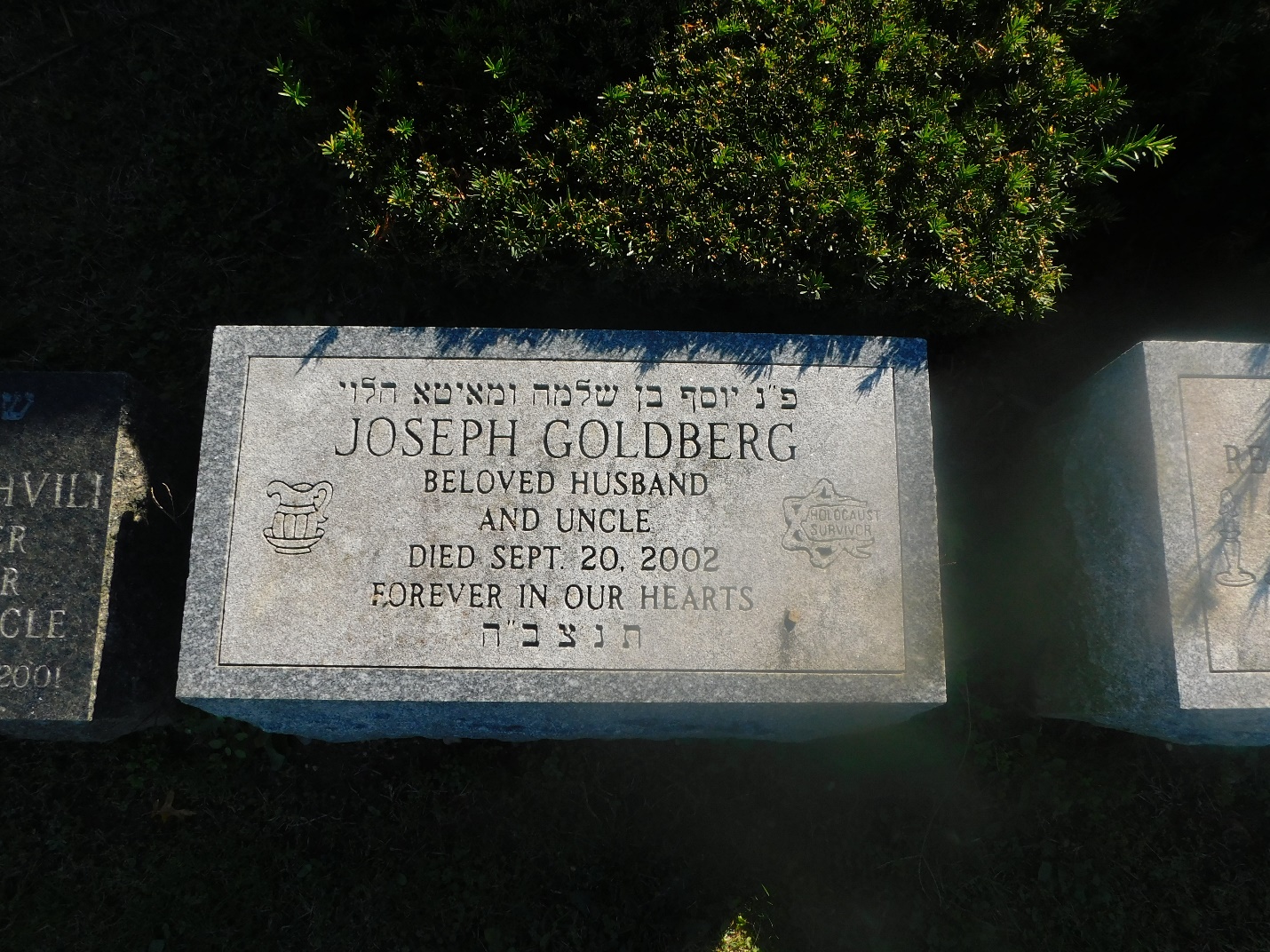
Reference:
https://sfiaccess.usc.edu/Testimonies/ViewTestimony.aspx?RequestID=92b5a798-d8d1-4ecb-846b-f57a9bac20be
~Blog Written by Avigail Meyers


